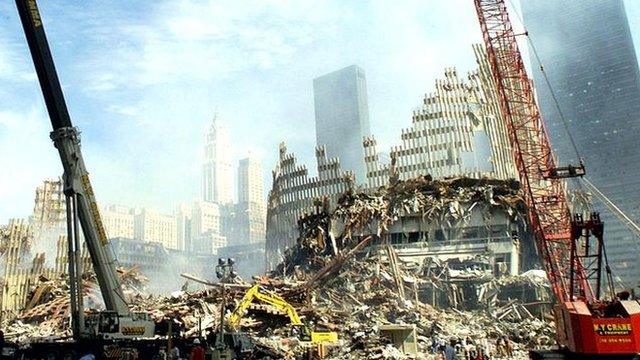Why are sick 9/11 heroes begging Congress for money?
- Published
Jon Stewart's emotional plea to Congress
A US congressional panel has voted to extend the 9/11 Victim Compensation Fund, a day after comedian Jon Stewart assailed lawmakers for their inaction.
Stewart appeared on Capitol Hill on Tuesday, calling it "shameful" that many lawmakers did not attend to hear testimony from first responders.
The comedian testified in support of the bill, which extends medical funding for 9/11 first responders.
The measure now moves to the US House of Representatives for a full vote.
The Victims Compensation Fund (VCF) covers medical costs of first responders, volunteers and survivors who were injured or sickened at Ground Zero following the 11 September 2001 terrorist attack.
Wednesday's vote, almost two decades after the disaster, moves to extend the fund through to the 2090 fiscal year.
"They did their jobs with courage, grace, tenacity," he told the House Judiciary Committee of the first responders. "Eighteen years later, do yours."
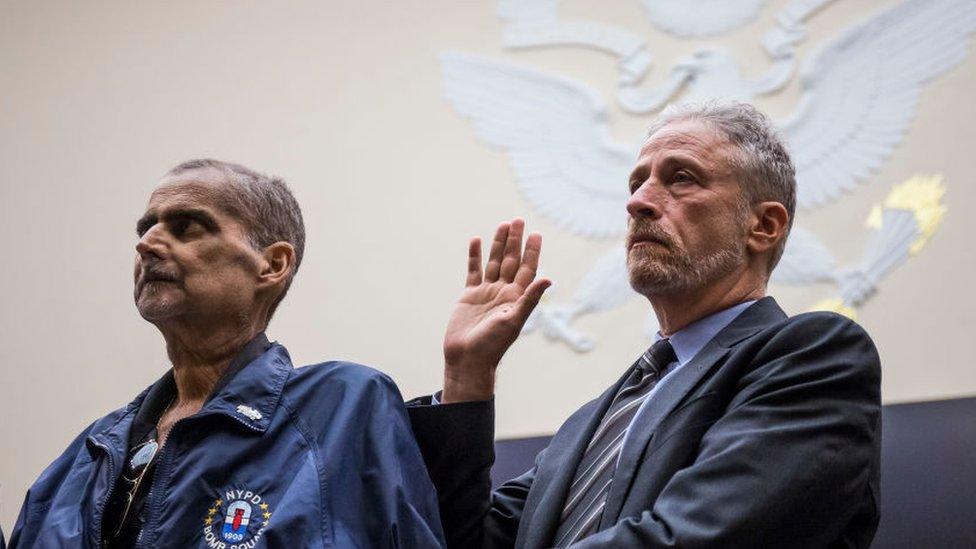
9/11 responder Luis Alvarez and Former Daily Show Host Jon Stewart appear before Congress
Though it was supposed to be funded until 2020, those administering it say a recent spike in claims has left the fund in danger of running out.
"Your indifference cost these men and women their most valuable commodity: time," Stewart said on Tuesday.
How did we get here?
Up to 80,000 people - including firemen, police officers, emergency workers, contractors and cleaning staff - are believed to have rushed to the aid of victims in the aftermath of 9/11.
In doing so, many exposed themselves to toxic debris in the air, including asbestos, lead, and pulverized concrete, which causes silicosis.
They join an estimated 400,000 people believed to have been exposed to toxic contaminants, or suffered injury or trauma in Manhattan that day, according to the US Center for Disease Control and Prevention (CDC).
As of September 2018, 2,000 deaths were attributed to 9/11 related illness. By the end of last year, many estimate that more people will have died from toxic exposures than were actually killed in the attack.
Luis Alvarez, a former New York Police Department detective said at Tuesday's hearing that he had survived 68 rounds of chemotherapy to fight 9/11-related cancer.
"This fund is not a ticket to paradise," he said. "It is there to provide for our families when we can't."
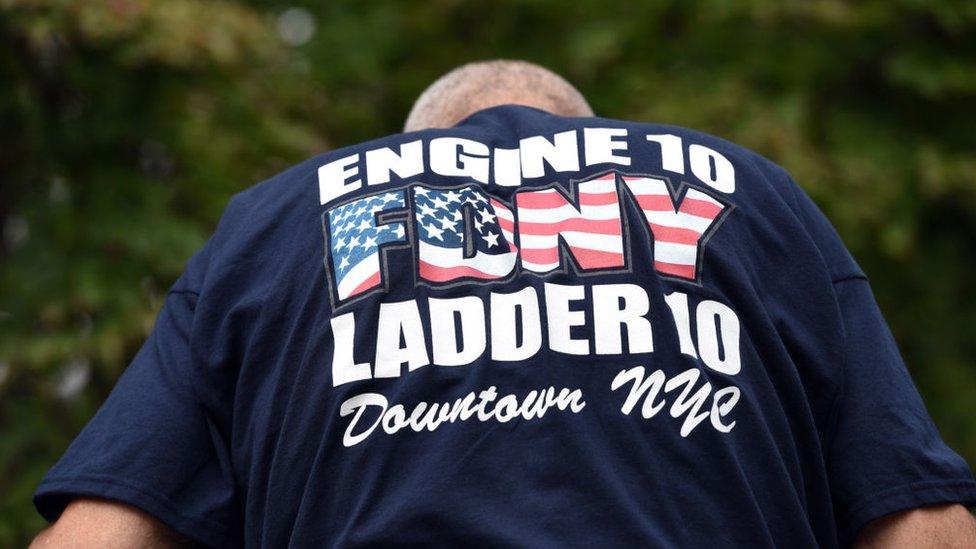
Congressional action
The VCF was initially created in 2001, immediately following the attacks. This original VCF distributed over $7bn (£6.2bn) to families of more than 2,880 people who died and for 2,680 injured.
In 2006, Senator Bob Menendez of New Jersey and Representative Carolyn Maloney of New York co-sponsored a bill that eventually became the James Zadroga 9/11 Health and Compensation Act, which effectively re-activated the VCF.
The act passed despite efforts from Congressional Republicans to block it.
In December 2010, in the midst of political turmoil over the Zadroga Act, Stewart dedicated an entire episode of his Comedy Central show to the fund.
Some credit him with its eventual approval after then President Barack Obama signed it into law in 2011.
Though it was initially authorised to accept claims until October 2016, the fund's deadline was later extended until December 2020.
A total of $7.38bn was appropriated for this second iteration of the VCF.
As of 31 May, 2019, it has awarded more than $5bn to nearly 22,500 individuals who have suffered as a result of 9/11, including the families of 850 people who have died.
Where are we now?
On Tuesday, Rupa Bhattacharyya, who administers the fund, testified to Congress that it will soon run out of money.
Mr Bhattacharyya said the VCF received a record number of new claims received in 2018, and is already on track to surpass that number this year.
In the first five years of the fund, up until 31 December, 2016, roughly 19,000 compensation forms were filed, Mr Bhattacharyya said.
"In the two years after that, through December 2018, almost 20,000 additional compensation forms were filed, with an additional 7,700 compensation forms filed so far in 2019."
The spike in claims has left the VCF at risk of a massive funding shortfall. As a result, future payouts to 9/11 victims and their families may be cut by as much as 70%.
The bill that passed the judiciary committee on Wednesday aims to make the VCF permanent and grant additional funding to the bill. A specific amount has not yet been allocated.
"There is no other choice", said New York Representative Carolyn Maloney, a sponsor of the bill. "This bill is about fulfilling our promise to 'Never Forget.' And we won't stop fighting until we guarantee that this programme will be there for anyone and everyone who needs it."
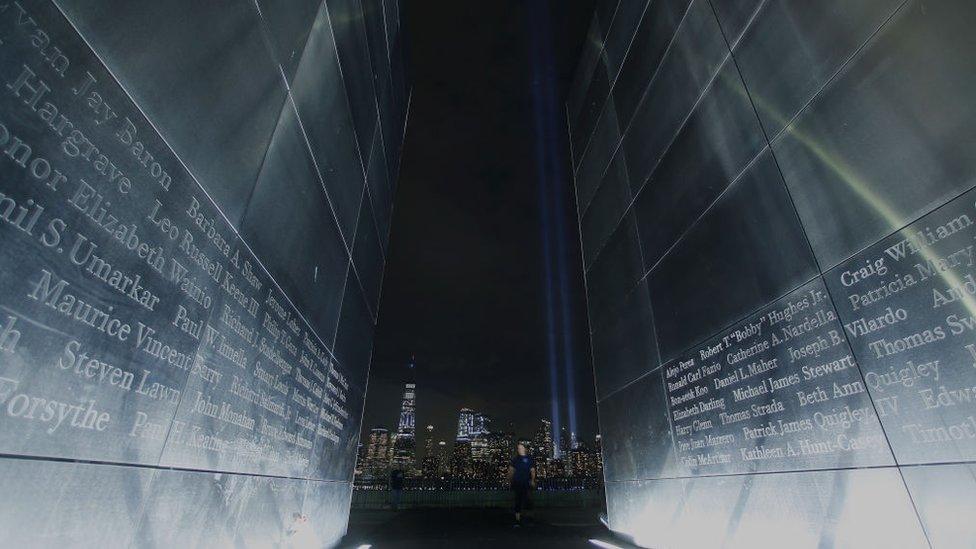
The Tribute in Light, which marks the anniversary of 9/11
- Published6 June 2018
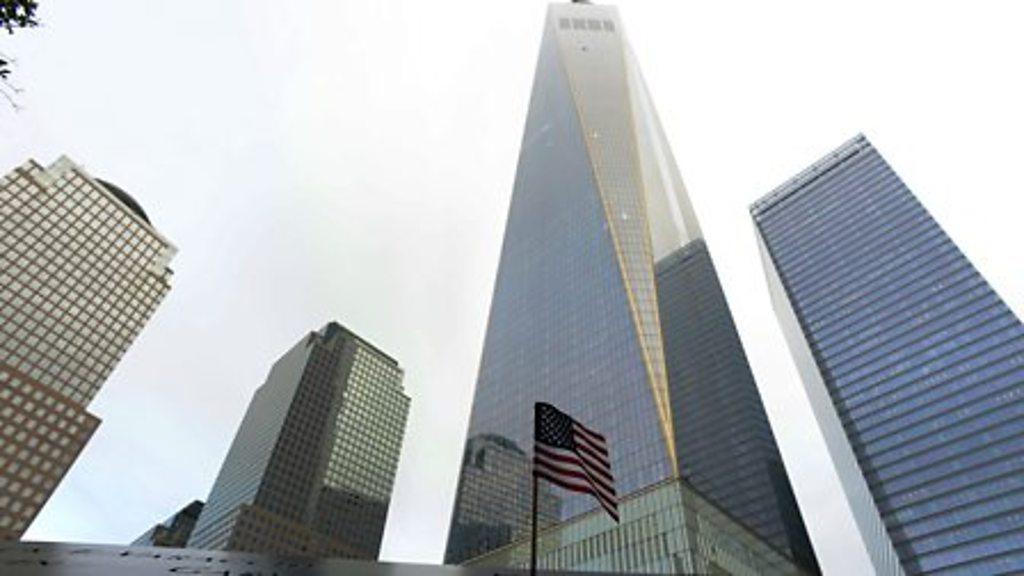
- Published11 September 2018
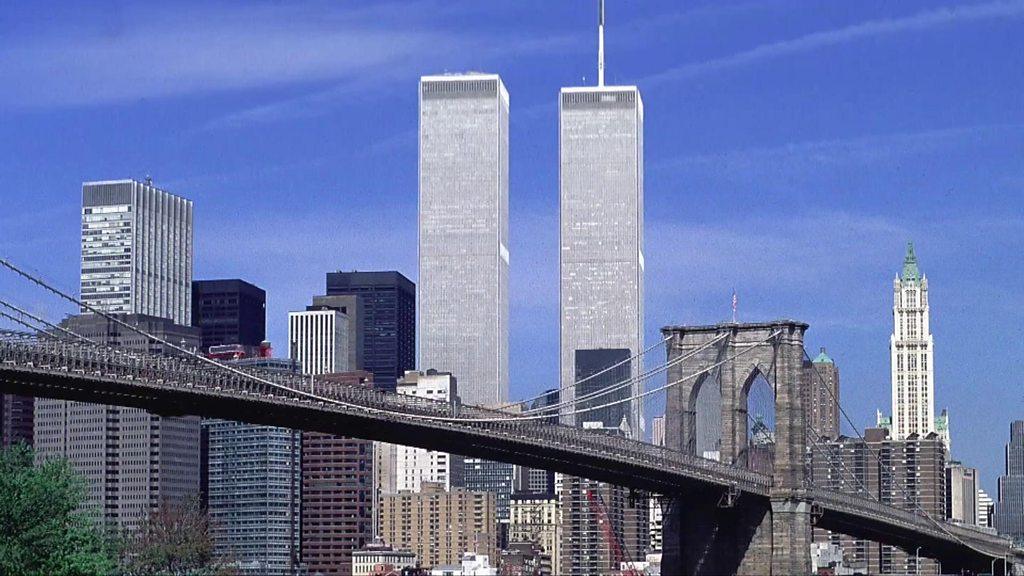
- Published10 May 2016
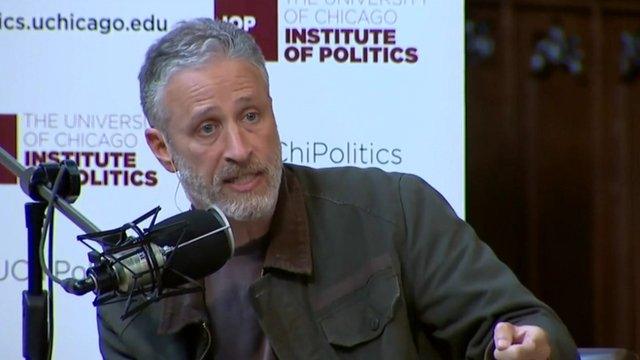
- Published11 September 2012
